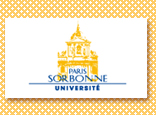| Thomas L. Hankins, Science and the Enlightenment, Cambridge University Press, 1990.
This course is based on extracting information that will allow you to understand the very text: there will be a test BEFORE you do the search in encyclopaedias and on the internet and AFTER. You will have to detail how you got the information on the internet (even the steps that were unsuccessful to elaborate a proper method and give the elements that allow you to trust a site scientifically).
1) "The seventeenth century had begun the revolution; the eighteenth would complete it": what is the "scientific revolution" characterized by?
2) You must be familiar with the great names associated with the "scientific revolution": Galileo Galilei (1564-1642), Johannes Kepler (1571-1630) René Descartes (1596-1650), Isaac Newton ( 1642-1727), Bernard le Bovier de Fontenelle (1657-1757), Kant (1724-1804), John Locke (1632-1704) : for each of them write a paragraph and remember what they remained famous for.
3) Who was Jean Lerond d'Alembert (1717-83)?
What did he write?
4) Comment on his quotation "... if one could smuggle mathematicians into Spain the influence of their clear, rational thinking would spread until it undermined the Inquisition."
5) What are the meanings of the word "Reason" according to the text?
Why oppose "reason" and "nature"?
6) You are strongly advised to read Swift's Gulliver's Travels (1726): comment on :
The noble Houyhnhnm "thought Nature and Reason were sufficient guides for a reasonable animal, as we pretended to be, in showing us what we ought to do, and what to avoid."
7) What is pantheism? How was God regarded? What does the expression "the great clock maker" mean?
8) Who was de la Mettrie? What was "l'Homme machine ? "
|



